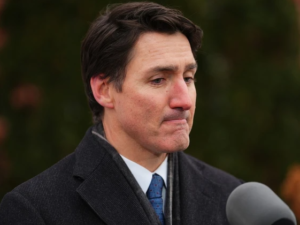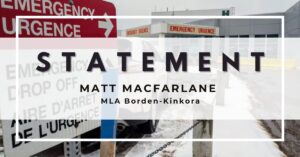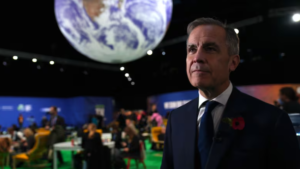Elaborate frauds known as carousel schemes are using fake business transactions to reap fraudulent tax refunds from the Canada Revenue Agency, costing Canadian taxpayers hundreds of millions of dollars. CBC’s The Fifth Estate and Radio-Canada’s Enquête teamed up to search for the missing money.
Video Script:
(00:02) [Bob McKeown] On this edition of The Fifth Estate, Scamming the System. The Bank of Canada is being robbed. Your tax dollars stolen. Why has nobody been arrested? There is obviously serious money involved in this fraud. [Bob] Serious money taken by networks of sophisticated fraudsters.
(00:20) You run into a bank with a gun in your hand and there’s very high level of risk. The beauty of this crime is that it’s so easy to perform. [Bob] The Canada Revenue Agency repeatedly duped into handing over hundreds of millions of our hard-earned dollars from the National Treasury as bogus tax refunds.
(00:39) We team up with our colleagues at Radio-Canada to take you inside the investigation… So we go down this alley, I believe. [Bob] …to find out who’s behind it. And what does that mean? You’re afraid? If they were really right about that, why am I not in handcuffs? [Bob] It’s a search that takes us <
(00:59) i> across the Atlantic to England… Mr. Zahoor, hi, I’m Bob McKeown from the Canadian Broadcasting Corporation. …and to Germany. Can you tell us where the money went, sir? I feel livid that this is happening in Canada. I’m sure the fraud is still going on as we’re speaking now. So, who’s been robbing the Bank of Canada? And how have they been getting away with it? I’m Bob McKeown. This is The Fifth Estate.
(01:27) If you were a criminal thinking of robbing a bank in Ottawa, perhaps the Bank of Canada down the street from Parliament Hill might not be your first choice. This is where your money goes when you pay federal taxes, and from here it pays for social programs, Medicare, education, defence.
(01:47) But our investigation reveals that multiple groups of tech-savvy criminals have set their sights right here– tricking the government into paying out huge refunds for sham business transactions. Cheques from the Government of Canada, sent coast to coast, transfers to Hong Kong, Dubai and England.
(02:09) We found case after case in Federal Tax Court where the Canada Revenue Agency says fake companies doing fake business, have resulted in repeated losses to the Government of Canada The CRA says they’ve identified $1.1 billion related to carousel schemes since 2017.
(02:29) It’s a crazy amount of money that’s being stolen out of your government’s treasury. It’s– it’s unimaginable. You move the goods around… [Bob] Bo Elkjaer is an investigative journalist in Denmark who knows all about how those criminals scam the system. This is money that’s being stolen from the Canadian government.
(02:51) It’s money that the government is supposed to use to pay off the welfare goods that you as a citizen would expect to get. It’s hospital beds, it’s schools and roads that’s being stolen by criminals who use it to– to– well, basically buy Ferraris. Our investigation begins here, with this merry-go-round, a carousel for children.
(03:20) And what we’ve discovered is known as a carousel scheme, in which a group of companies works together to create the illusion of legitimate business with large sums of money being passed from one company to another, around and around. Much like these carousel ponies. The first company in the carousel is supposed to pay tax on the products it sells but it doesn’t.
(03:46) And to disguise that fact the products are sold and re-sold to multiple “buffer” companies. The last company in the chain then exports the products. But no sales tax is payable on exports from Canada. So that last company gets a refund on tax that was never paid in the first place.
(04:08) Before you know it, some of the companies have disappeared and so has your money. [indistinct radio chatter] According to the Canada Revenue Agency, this man, Samer Bishay, is at the centre of one of those carousel schemes. One 6000, eight, Sierra Bravo. [Bob] One which they say cost Canadians $63 million dollars.
(04:33) Bishay runs Iristel, a Canadian telecommunications company. He’s also a pilot. He maintains he’s innocent, that if the CRA succeeds it will destroy his company and his reputation, so he’s suing them for $275 million. And he’s going public to clear his name.
(04:57) -Welcome in Matane, sir. -Hi, thank you. [Bob] In Matane, Quebec, on the south shore of the St. Lawrence River, the mayor comes out to greet Bishay. Towns like Matane say Iristel’s services are badly needed in their remote communities. We are spread all around the area, so many people are not still connected to the high-speed internet, to the cell phones, so it’s a great challenge for your company.
(05:22) Thank you. So, this is a test site right now we never… [Bob] Samer Bishay says he grew his business by providing those essential telecom services to rural Canadians. This location is pretty critical for us because we service a lot of the two-way radio systems for public safety, for Sûreté du Québec, for ambulance, police.
(05:43) [Bob] And if the CRA gets its way, he says he’ll no longer have the money to help those Canadians. I put blood, sweat and tears for almost 25 years in this company. They accuse me of something without any factual findings. [Bob] In fact, following a six-month investigation, the CRA concluded that Iristel was at the “centre of the scheme,” with “control over the supply chain” and was the “defacto banker”.
(06:11) They say Iristel was either knowingly involved or “wilfully blind”. Today, the CRA is demanding Iristel pay back the $63 million of government money it got and millions more in penalties. This is not just an attack on a taxpayer. This is an attack on entrepreneurship.
(06:32) This is an attack on hard work. [Bob] Oh, wow. It’s hard to know where the eye goes first. Samer Bishay says he built his company from the ground up, and he makes no apologies for the success he’s enjoyed. Every milestone of success that I hit, I like to kind of remember it with– So, this is a 2009 Audi R8.
(06:54) And what happened in 2009? We landed a huge contract with a large American company. So, first of all… [Bob] Bishay says it’s telling that he is not facing any criminal charges, where the burden of proof would be on the CRA. So, yeah, what they’re trying to do is portray me as the mastermind behind all of this.
(07:13) That’s all nonsense. [Bob] So how did Samer Bishay find himself in such a mess? This is it, this is where it all happens, right here. -How are ya? Good? -Good, good. [Bob] The answer to that has much to do with the highly competitive world of global telecommunications.
(07:31) Hi, how are you? [Bob] Telecom is big business, often based on personal relationships forged at massive trade shows. Delegates from around the world are here to do deals. For Samer Bishay and his VP of Sales, Nik Petridis, it may look like organized chaos as at this conference in Maryland.
(07:52) -I’ve got a twelve o’clock. -Is he meeting us after, or? Who’s your twelve o’clock? [Bob] Major telecom operators come here– Videotron, Verizon, AT&T. There also are hundreds of smaller telecom companies you may never have heard of. Back in 2018, Samer Bishay decided to expand his business with some of those lesser-known companies into what’s called the wholesale market.
(08:20) For Bishay that meant the buying and selling of bulk internet telephone minutes. When you make an international phone call, that call bounces at lightning speed often through multiple telecom companies, finding the cheapest way to its final destination.
(08:36) And it’s at the telecom conferences where those connections are made. [Samer] It’s literally just minute trading. Minute, data, SMS, all the stuff that we use every day on our mobiles, on our landlines. Touch base with me. Send me a text. [Bob] It is a combustible market, as evident in the dramatic increase in Iristel’s annual sales figures.
(09:00) According to the CRA, from $27 million in 2017, to $800 million just two years later. And as its exports boomed, Iristel began claiming millions of dollars every month in Canadian tax refunds. Hey, we’re in the lobby where Belvedere is. [Bob] But who exactly were those new suppliers and customers that Iristel was getting into business with? Today, Iristel sales chief Nik Petridis concedes the CRA may be onto something.
(09:33) Perhaps someone else in the chain didn’t pay their taxes. If they’re pressing this long, they know something has happened. We’re not arguing that, but nothing happened with us. Nothing ever happened with Iristel. [Bob] Samer Bishay says, perhaps the problem is higher up the chain.
(09:56) So then on top of that, what the CRA is alleging in my case is that a supplier of a supplier of a supplier. So, three layers down that I have no idea who it is. In telecom, you only know your immediate supplier and your immediate customer. [Bob] And CRA documents allege that Iristel’s US customers “exhibited a lot of red flags”, and that one of those companies, called LDI, was a key participant in the carousel scheme.
(10:23) Meet Louis Arriola. [James Lott Jr.] He executive produces TV, films, he’s the CEO of LDI Networks. Louis Arriola, how are you sir? I’m very good, happy to be here. [Bob] Arriola says, he’s a former member of the US Marine Corps who now promotes himself as a telecom executive and movie producer.
(10:43) But in 2009 he was sentenced to 27 months in prison for a fraud involving a fake telecom company. In 2012, he was accused of “looting and misappropriating company funds” in a case that was later settled out of court. And there are more cases ongoing.
(11:01) When I met Lou, he was telling me about how he was going to give us all… the business from one of our competitors. And those are things you want to hear. So, the last thing I’m going to do is go and Google him to see if he’s a criminal or anything like that. [Bob] He’s a convicted fraudster. That’s what we found out.
(11:19) [Bob] He went to prison in 2009 for fraud. He was accused of defrauding another company in 2012. Yeah. We found that out after at the time. You couldn’t have found it out before? Because we don’t typically run Google searches on owners of companies. We run a credit check. We had a Dun & Bradstreet report that said they were low risk.
(11:41) He’s a telecom veteran, and the last thing you would do is why would you go to a Google search about somebody? I don’t do that. Because it would tell you if he’s a convicted fraudster. All right. [Bob] When we come back, the hunt for our missing millions. The solution is to go after the criminals very fast, very hard.
(12:02) Why has that not been done? Your name has been mentioned in connection with a large fraud in Canada. You have to speak with my lawyer. ♪ [Bob] To the average Canadian, a carousel like this, might conjure up memories of childhood. But to the Canada Revenue Agency, it may suggest something quite different.
(12:26) Elaborate schemes to defraud the Federal Treasury by claiming illegitimate tax refunds. So, technology typically… Today, Samer Bishay is fighting allegations from the CRA that he was at the centre of a $63 million scheme connecting his suppliers in Canada to his customers outside the country.
(12:47) He says if he were caught up in a carousel scheme, he knows nothing about it. So, where did your missing millions go? We went up the chain to find those telecom companies. When they didn’t get back to us, we hit the road, using hidden cameras. First stop, 30 minutes west of Toronto, the corporate headquarters of a company called Carrier Zone.
(13:17) According to the CRA, in 2019 Iristel claimed it purchased $22 million worth of telephone minutes from Carrier Zone. Their office was registered here in this apartment block. [line ringing] [Matt Pierce] Is this Omran Abdul Salam? I’m trying to speak with Omran about Carrier Zone, a telecom company he owned.
(13:39) [knocking on door] [Bob] But apparently Carrier Zone had moved on. [Harvey Cashore] The thing downstairs still says Omran. Sometimes I receive a letter in this name, but I just put it back in the, you know. [Harvey] Thanks very much, sorry. -Bye. -[Matt] All right. Bye. -That was definitely not him. -No.
(13:58) [Bob] Our next stop, a 15-minute drive to the offices of ML Telecom in Mississauga, Ontario. In 2019, they claimed they sold $90 million of telephone minutes to Iristel. All right. [Bob] And their address took us to this accounting firm. [Harvey] Their company is registered to this address? [Bob] Though the new owners said, they’d never heard of ML Telecom, Thank you, appreciate it.
(14:27) Thanks for your time [Bob] ML Telecom’s only shareholder is Linoy Xavier Antony, He told the CRA he was a driver for Uber and for Skip the Dishes. But he didn’t return our messages either. -Okay, you rolling? -Yeah. That’s recording. [Bob] Next was Hamilton, Ontario.
(14:45) According to the CRA, in 2019, Iristel claimed it bought a whopping $156 million in telecom minutes from a company here called Joven Tel. Their corporate records took us to this office building in downtown Hamilton. [Bob] I’m trying to track down a company that I think uses you as their address.
(15:13) It’s a company called Joven Tel. [man] They were here years ago, they’ve been gone for… before COVID. I have stuff come for them and we send it back RTS. -RTS? -[man] Yeah, “return to sender.” [Bob] Right. Thank you for your time. Okay. Bye-bye. [Bob] Stephen Reza listed himself as Joven Tel’s Director of Operations.
(15:37) But his LinkedIn page says his business is installing stone countertops. He also wrote a book about bitcoin and cryptocurrency. [voicemail] Hi. This is Stephen Reza. -Please leave me a message. -[line beeps] Stephen, it’s Bob McKeown from The Fifth Estate.
(15:52) We’re still waiting on his return phone call. Well, let’s hope this is a bump in the road. Not what the rest of the road is going to be like. [Bob] Joven Tel corporate records also list Joshua Venturelli, Stephen Reza’s brother, as a director. His corporate filings show an address in Hamilton’s east end, just south of Tim Horton’s field, where the Tiger Cats play football.
(16:17) So we go down this alley, I believe. Hi, we’re hoping to be put in touch with one of your tenants. [landlord on phone] I know the name and he used to be a tenant of mine, -but he’s not anymore. -Bye-bye. [Bob] Venturelli had moved out, but we did talk to his former neighbor.
(16:33) Do you know how long ago he left? He hasn’t been here for a few years. Oh, a few years? Yeah, he lived here alone. He actually was right above me. Did you ever talk to him about his occupation, his business? Well, he said, like, as far as I knew, he was, like, he installed -granite countertops. -[Matthew] Right.
(16:49) I wish you well on your quest, gentlemen. [Matthew] Thank you very much. ♪ [Bob] Our next stop was London, Ontario, and a company called Aella Telecom. Iristel reportedly bought $16 million in telephone minutes from Aella in 2019. We found the address of its corporate headquarters in this residential neighborhood.
(17:20) -[Bob] Hello. Mr. Butt? -Hey. Yes. [Bob] Hassan Butt was listed as part owner of the company and he answered the door for us. Okay, guys, so tell me about what– what are you guys looking for? [Bob] In tax court, the CRA alleges Aella is a front company. I didn’t know. I don’t know much about it.
(17:38) [Bob] Hassan Butt says he registered the company as a favor for a friend… and that now the CRA is coming after him. [Matthew] Thanks very much. Thank you. Appreciate it. [Bob] Samer Bishay says he saw nothing suspicious when he says he began paying hundreds of millions of dollars to those companies that we just visited.
(18:08) One of the things the CRA said, they concluded that many of the companies you do business with are “paper companies.” What do they mean by that? I have no idea, because one of the things I think that they say is, “Oh, they’re all, like, Regus-registered addresses.” Well, guess what, when I moved away from my parents’ basement, I registered an office at Regus.
(18:29) Iristel was a Regus address [Bob] It wasn’t just that they operated from their homes or rented offices. According to the CRA, Iristel’s suppliers were of “modest means” and had “no real business activity”, despite the fact they had claimed $663 million in sales.
(18:47) The CRA alleges Iristel was only concerned with creating tens of millions of dollars in illegitimate tax refunds. These companies, they disappear before they can pay back the GST. [Bob] Danish journalist Bo Elkjaer has reported on carousel fraud schemes for a decade, and he helped us with this investigation.
(19:08) When you get higher up in the hierarchy, you get further and further away from the frontlines, so to speak. At the bottom level, you find any people that would sell off their identity to be used as a front figure in a false company. [Bob] He says in the vernacular of the business, the people at the bottom are known as “stooges,” who may well feel like the ponies going around and around in circles on a carousel.
(19:35) On our carousel quest, we visited dozens of locations where all together, hundreds of millions of dollars in telecom business purportedly took place. Yet we found abandoned offices, rental homes, and few people who seemed to know anything about the telecom industry.
(19:54) So, what happened next would be a turning point for us. Associate Producer Matt Pierce obtained invoices from two companies in the alleged carousel scheme, called Envision and Bestec. So, was there real business activity behind those invoices? Or were they just a front, to create an illusion? Iristel’s doing business with four companies.
(20:18) But those four companies are doing business with just two. And those two are doing business with just one. So all the minutes for all of these four companies are coming from one central place, from Telo. One of the invoices you just sent me, Matt… [Bob] Then our Radio-Canada colleagues at Enquête made another discovery.
(20:38) The invoices contained information buried in those PDF forms about who created them and when. And you can see when it was created, time and software that was used to do it. [Bob] They discovered these invoices from companies across Canada were actually created in Pakistan.
(20:59) And they all listed the same author, someone named Noorulain Hassan. [Harvey] That’s ML Telecom billing Iris. [Bob] Nick Petridis of Iristel. Wow. Wow. [Harvey] But doesn’t it say that the same person who did the invoicing -for all these companies– -It certainly does. It certainly does. She doesn’t do our invoicing.
(21:26) I could tell you that much. I don’t know who that is. But that does sound like they’re very closely knit. Um, yeah. [Harvey] It could speak to a carousel scheme? It could. Yeah, This is a huge no-no for us. So, let’s take a look here… [Bob] Our Radio-Canada colleague Frederic Zalac showed the same invoices to Bo Elkjaer.
(21:49) So, here let’s look at the time. It’s within seconds. These two are within seconds. [both laughing] Oh. It really makes no sense. It’s just crazy. So, there’s not a doubt in your mind here -of what we’re seeing? -No, no. No, not a doubt. How– how would you explain this as a regular, legal business transaction? What’s the reason to do it like this? It’s just the movement of the minutes from company to company to company in a chain.
(22:25) This really fits the pattern for GST fraud. [calliope music plays] [Bob] Someone seemed to have made a big mistake. Leaving a clue that a number of these suppliers were working together. Now it was time for us to visit a company called Telo Networks, the one company in Canada, according to the CRA, at the top of the chain.
(22:49) The Chief Executive Officer of Telo Networks is Danish Habib, based in Windsor, at least, according to his LinkedIn profile. But corporate records show that Danish Habib was also a driver for Walmart, apparently with no prior experience in the telecom business.
(23:12) [Bob] As you can see, we’re on the road, heading west along Highway 401 towards Windsor, Ontario. If someone can help to locate all that missing money, our money… it’s Danish Habib. Hello. Sorry to bother you, is Danish Habib here? -Thank you. -[Matthew] Thank you. Bye-bye. [Bob] It seems Danish Habib had vanished too.
(23:39) And he might have had a reason to lay low. During their investigation, the CRA was told Habib transferred half a million dollars into his own bank account. Then “was threatened by people with guns in his home.” He apparently paid the money back two days later.
(23:58) [line ringing] And then we got a call from a source whose voice we’ve altered, because they were also afraid for their safety. [secret source] Please do not tell him that you’ve been talking to me. [Bob] That source told us we were looking in all the wrong places.
(24:14) That the real bosses of the carousel scheme weren’t located in Canada at all, but abroad. [secret source] He has some friends here. And what does that mean? You’re afraid? [secret source] I don’t know, he might ask them to do something stupid. They know where I live.
(24:33) [Bob] When we come back… There is obviously serious money involved in this fraud, and there have been some very dangerous people over the years. You’re the sitting duck in a huge global-organized crime. You’re the target. ♪ [Bob] The Canada Revenue Agency collects your taxes and makes sure that refunds go where they’re supposed to.
(24:58) But in 2019, they believed they’d made an enormous mistake, paying out a bogus $63 million to fraudsters. So, where did all that money go? The CRA alleges that millions ended up outside Canada. Our investigation reveals an international network of individuals involved in the Canadian carousel scheme.
(25:25) People connected to Pakistan, the United Arab Emirates, Germany, Denmark and England. You need to ask your politicians now to understand this is a very, very serious attack on the Canadian revenue. [Bob] Which is why we’re meeting with Mike Cheetham. He’s helped to expose carousel fraud schemes in Europe for more than a decade.
(25:47) And he says we shouldn’t be too quick to judge Samer Bishay and Iristel. The criminals have attacked the Canadian tax system. It appears that his company has been caught in the middle of this, surrounded by stooge companies. [Bob] In the early 2000s, Cheetham says he was inadvertently caught up in a carousel scheme himself.
(26:08) He’d been targeted and used by fraudsters to help cheat the United Kingdom’s tax department. It’s an absolute replica of the models that we’ve seen in Europe. [Bob] Cheetham now spends much of his time warning others and says Canada needs to get these cases out of tax court and pursue them criminally.
(26:28) Why are you here in the United Kingdom, trying to trace these criminals down? And to my knowledge, the CRA has done nothing, absolutely nothing to go after these people. There are extradition treaties. Why are they not tracing them? Here in Europe, we have proceeds of crime. They can seize everything these people have.
(26:48) [GPS automated voice speaks in French] [Bob] So if the CRA isn’t looking for them, we thought we would. We got information that another participant in the Canadian carousel is a man named Habib Khan, now living in Germany. Khan allegedly helped to set up the operation in Canada, recruiting and directing the so-called stooges, registering companies in Ontario and BC.
(27:18) And he was the one reported to have come to Canada to threaten Danish Habib with guns after money went missing. We located Habib Khan in a quiet neighborhood in Stuttgart, where his name’s on the mailbox. [door buzzes] -[Harvey] Hello? -[Khan] Hello. -[Harvey] Habib Khan? -Yeah? [Bob] We told him we wanted to talk about the companies that he’d set up in Canada.
(27:44) I have nothing to say to you, I’m sorry. [Harvey] Can you tell us where the money went, sir? Where the money went? Millions went missing. Which millions? [Harvey] From the– from the Canadian government. [Bob] Habib Khan later denied any involvement in a carousel scheme and said he had never threatened anyone.
(28:08) Back in the United Kingdom, in the town of Hayes outside London, we’ve located another man reported to be instrumental in recruiting and instructing many of the so-called stooges in Canada. His name is Amir Agha Zahoor. Court documents show that his company received millions from Canadian stooges, with another $50,000 deposited to his personal account.
(28:34) On social media, Zahoor appears to lead a normal suburban life, working out at his local gym, playing cricket. The CRA noted Zahoor used to live in this townhome in Hayes with a roommate, who was convicted in a carousel fraud scheme and sentenced to prison in the UK.
(28:56) We went to Zahoor’s current address. Hi there. Is Mr. Zahoor here? -[woman] Yes, he is. -[Bob] Can I speak to him? -[woman] Yes. -[Bob] Thanks. [Bob] It turns out all we had to do was knock on the door. As you know, your name has been mentioned in connection with a large fraud in Canada.
(29:14) The Canada Revenue Agency says you’ve received payments, illicit payments because of it, and we’d like to get your side of the story. I can’t give you any– any comments. [Bob] Why not? You have to speak with my lawyer. I’m just an Uber driver here. -You’re an Uber driver. -Yeah, yeah, yeah, yeah.
(29:33) We’ve actually heard that denial before that people aren’t who… they actually are, that they don’t live where they really live and that they’re not involved in this. I am not going to say anything right now. If anything goes against me right now, it’s better that you should, you know, uh, contact with my solicitor.
(29:51) It’s– it’s going to be easy for all of us. [Bob] Uber driver or not, Zahoor referred us to his criminal lawyer who claimed they weren’t aware of any investigations in Canada, and would have nothing to say. I think you probably only uncovered the tip of the iceberg.
(30:08) I believe that the fault here is with the tax authority. There will always be criminals, they will always attack the low-hanging fruit. And your tax system is wide open for this fraud.
The rules of the game need to change, and that’s what the European Union is doing. [banging on door] [reporter] The surveillance team tracked all the suspects to the meeting. [news anchor] Spanish police proceeded to arrest her with the intention of extraditing her as soon as possible.
(30:58) [reporter] The nine-month trial found six of the seven guilty as charged, who all received at least five years in prison. [speaking French] [Bob] In Europe, there’ve been numerous arrests and convictions. But throughout the EU, criminal investigations are not the only priority.
(31:15) So too is prevention. A growing list of industries prone to carousel fraud are exempted from collecting sales tax to prevent bogus refund claims. And unlike in Canada, European companies are required to know far more about their suppliers and customers, says Mike Cheetham.
(31:38) I think by European standards, when you look at the Iristel case, it would be a problem. There would be red flags all over the place. You are expected to visit your customers and suppliers to check them out. The law requires it. There’s been some jail time for some of the higher levels in– in– in this structure.
(31:56) So, they’ve moved to safer areas. They found places where– where they are not yet being investigated and hounded by the authorities. And that would be Canada. [Frédéric] So, we’re now an easy target. Yes. Yes. You’re the sitting duck. In– in huge global organized crime you’re the target. [Bob] We requested interviews with the Commissioner of the Canada Revenue Agency, Bob Hamilton, and with Canada’s Minister of Revenue, Marie-Claude Bibeau.
(32:26) Both declined. In a statement the CRA told us they’ve made significant investments in detecting carousel schemes. And that they aim to prevent and address them as early as possible. Mike Cheetham says it’s already too late. How many heart operations, how many cancer treatments does this– Coming from a medical background as I do, I feel livid that this is happening in Canada.
(32:51) I’m sure the fraud is still going on as we’re speaking now. [Bob] When we come back… [Harvey] He’s saying there that they have direct evidence to tie Iristel to the scheme. Perfect. Where’s the evidence? [Bob] Samer Bishay has had a turbulent ride over the past four years, fighting allegations he’s been involved in a carousel scheme that deprived the Canadian treasury of $63 million.
(33:22) In tax court and in federal court, the Canada Revenue Agency has documented its case against Bishay and his telecom company Iristel. The CRA says, Iris has not been behaving like a company in financial peril. <
(33:44) i> According to them, Iris leased a fleet of luxury cars… including two Jaguars, a McLaren, two BMWs and a Porsche. Also, they say Bishay himself got $2 million in a shareholder loan repayment, and he bought a $7 million executive jet. These are leases on vehicles, and you’re talking about a couple of thousand bucks.
(34:04) I’ve had sports cars and– Since 1999. And the jet that they talk about for $7 million, that’s a jet that goes on a private jet charter operation that generates 40% return. You siphoned off, and that’s their phrase, siphoned off $4 million to your Romanian affiliate. Iristel Romania is one of our companies that’s been there since 2001.
(34:26) They run our call center. That’s what’s infuriating about this whole process is how could the DOJ not get their facts right, you know? And– and just accuse. [Bob] But the CRA says it’s Bishay who has his facts wrong, and that he provided “no supporting invoices” to explain those payments to the bank account in Romania.
(34:47) They also reported that in 2019, Iristel’s Vice President of Sales, Nick Petridis, was paid $1.8 million, some in commissions for sales the CRA alleges never really happened. 1.8 million is Iristel’s commission to me. But that’s all my commissions, yeah.
(35:06) That was my– that was my best year ever. Every minute that came in we made margin on. It’s a fraction of the money made, for sure. But that’s what I do. I make a fraction of what I bring in. [Bob] Tax court documents also state that an accountant connected to three of the Canadian stooge companies offered to make a deal.
(35:26) If his clients were given concessions they would co-operate and provide direct evidence of Iristel’s involvement. The documents don’t say what that concrete evidence might be. [Harvey] So, he’s saying there that they have direct evidence to tie Iristel to the scheme.
(35:43) Perfect. Where’s the evidence? What evidence are they going to provide? I think they’re full of it. [Bob] The court documents show the CRA had serious questions about Iristel’s relationship with this man, the convicted fraudster Louis Arriola. The CRA alleges that Iristel paid kickbacks of $275,000 to Arriola’s company, LDI, as well as to another US customer for participating in the carousel scheme.
(36:17) The CRA alleges the payments were omitted from Iristel’s general ledger “with the intention of hiding the kickback.” Samer Bishay claims there is a benign explanation. They were loan repayments. They are not able to read what are financial statements, they were not kickbacks.
(36:34) They were simply payments that had nothing to do with HST. [Bob] And according to this email, Arriola also had in-depth knowledge of Iristel’s suppliers, and helped process their payments. The court file shows CRA auditors wondered about what happened next.
(36:54) Iristel and Louis Arriola moved away from traditional banking and onto a cryptocurrency-based payment platform. Hi, I’m your guide to using TeleEscrow. [Bob] TeleEscrow and Amerix Coin were promoted as a tool for telecom companies to quickly settle accounts.
(37:14) Free yourself from the banks and start using the most valuable coin on earth, Amerix. [Bob] And it turns out Louis Arriola was the man behind both. The criminals, unfortunately, use payment platforms. This is to mask the transactions because banks have a responsibility, even in Canada, to report suspicious transactions for money laundering.
(37:37) But in Canada, it’s a– it’s a new thing. People are not aware of these payment platforms and how they operate. [Bob] According to the CRA, Iristel directed its suppliers to use Arriola’s payment platform, TeleEscrow. And the CRA alleges the purpose of TeleEscrow was to make it look as if money were moving between Iristel, its suppliers and its customers.
(38:01) But in our interview, Bishay claimed he had no idea that Arriola was behind the payment platform. [Bob] Was Lou Arriola part of the connection to TeleEscrow? He was definitely recommended the platform, but I was not made aware of any ownership status or anything like that. [Bob] And soon, Louis Arriola and TeleEscrow were in big trouble in the US for alleged wrongdoing in numerous other cases.
(38:31) A bankruptcy receiver said TeleEscrow was “designed to defraud,” part of a criminal enterprise with no real business activity. And that Louis Arriola and others at TeleEscrow conspired to fabricate a pretend business to perpetuate a massive fraud against lenders.
(38:49) Arriola has not responded to our repeated attempts to reach him. So, you’ve– you’ve got a company that appears to be… essentially in business for fraud. And then you’ve got the recommendation of who– of Lou Arriola, a convicted fraudster. I didn’t know who Louis Arriola is partners with or who he’s dealing with or who he’s sleeping with.
(39:14) That’s none of my business. And it’s very unfair to come four years into it and say, “Well, you should have known this, and I should have known that.” Should have known what? [Bob] Yet in our first interview, Samer Bishay claimed he hired a major accounting firm to look into TeleEscrow before signing up.
(39:34) Uh, we have a full report from Deloitte at the time that we said, “Is there anything wrong about using this platform, about this technology in general?” Not at all. [Bob] In fact, under oath, Iristel’s CFO admitted to the CRA that Deloitte had not been hired to determine the legitimacy of TeleEscrow.
(39:56) Emails show Deloitte asked for a meeting with TeleEscrow, but Iristel turned it down. They are accusing you of… managing a massive fraud against the Canadian treasury and therefore the Canadian people. If they were really right about that, why am I not in handcuffs? [Bob] A civil court judge may one day rule on the CRA’s allegations that Iristel played a central role in the carousel scheme.
(40:27) So far, all allegations remain untested in court. But for Canadians the real question might be, “Where did your tax dollars go?” We traced the invoices we obtained to Pakistan and to a company in Islamabad called Samaviya. Which, according to a CRA audit, in 2019 alone was sent $42 million from a carousel scheme in Canada.
(40:52) [Bob] Minister Bibeau. Hello, I’m Bob McKeown. [Bob] We thought we would try one more time to speak to the Minister of Revenue about carousel schemes in general. After all, it’s your money, your tax dollars being stolen. [Bob] We are doing an investigation on carousel tax frauds…
(41:12) and I’d like to ask you a question if I could. Um, I would answer your question, but I’d prefer to get a little briefing before. [Bob] Bibeau was appointed Revenue Minister this past summer. Though it seems the CRA had not yet got around to briefing her. [Bob] Carousel tax frauds.
(41:31) How big an issue are they for the CRA and as minister for you? Okay, seriously, Simon will just, uh, stay in contact with you and I’ll get back to you, okay? But I– I– I need to, uh, look at it. [Bob] We– we’ve had some difficulty getting a yes to our interview request. I say yes, okay, I say yes, we’ll do it, but let me get ready for that.
(41:56) [Bob] That’s very kind of you. Thanks. Okay? Thank you. [Bob] But Minister Bibeau promptly changed her mind. Though the CRA has identified at least $1.1 billion related to carousel schemes in Canada, the minister decided she wouldn’t be discussing them with us after all.
(42:14) Instead, she sent this statement. [Bo] The money has left your country, the– the money has left my country, and you can’t imagine where. You have to face the reality that you’ve been stolen of money that you’re never going to see. The– the money’s gone. [no audio]






